I just got back from the Carter Center Mental Health Symposium on Social Inclusion. I guess this is a prestigious invite, and I was expecting to meet people on the cutting edge of mental health research. I got invited based on my work with the Poetry for Personal Power program where I’ve helped get together over 1800 young people to talk on stage or listen to each other talking about what they do to get through adversity.
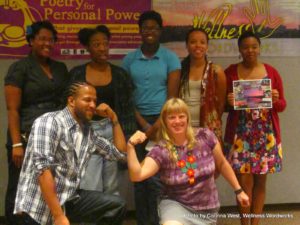
I had just came off a big blitz where I’d hosted 11 social inclusion open mic poetry campaigns at universities across Missouri. In the same 3 weeks, I’d also been to the Alternatives conference where I sold 60 T-shirts, hosted a caucus, a workshop, and did a performance of The Disability Industrial Complex for MindFreedom’s ECT protest. I’d done an all-day Judo demo to launch my Combat Arts for Recovery program, and then written a 13 page fellowship application. This might explain why none of my 4 blogs have been updated lately.
My peer support experience before the Carter Center Mental Health Conference:
I had one night off before the conference where I looked at the Carter Center’s website and You’Tube Channel. Suddenly, I realized they were still talking about a disease model approach to mental health exclusively. They had no mention of a concept of mental health crisis as simply an overload to one’s personal and social supports. I posted a grumpy post in a Facebook group and said, “What are these people doing?”
One of my friends got back to me, one of the leaders in the arts and recovery connection. He said, “I have always admired and supported the wellness activities instituted at the Carter Center. Roslyn has always been an advocate for the arts in recovery and has a very active arts program at the Carter Center. Both the President and Mrs. Carter have always been strong supporters of recovery as opposed to institutionalization or any of the other outs used by Psychiatry.”
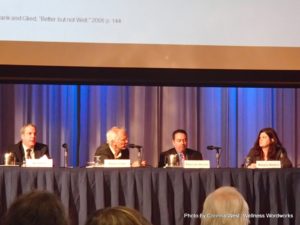
So I took the worst grumpy post down. And my other friend, Clif Wright, who I’ve not met yet but met through the internet, told me to keep my trauma issues (which still bother me) in mind. Clif said, “When I am faced with a similar situation and with my own reaction/ stuff about folks I find it best to be a generous listener, to be open and appreciative… to be curious seeing ‘them’ as a possibility, as allies, teachers, and fellow seekers. As best I’m able I try and check my shit at the door, leave it home or at the very least try not to have it blind me to those I have actually invited into my space…”
I said, “You’re right, it is my own shit… Those type of people that keep telling this story of emotional distress being an ‘illness’ instead of a temporary overwhelming of resources are the same type of people who have fired me from so many jobs….”
Clif Wright said,
“The two most deadening and deadly words in our social lexicon…….. ‘Those People.’ What this always tells me is that once invoked ‘those people’ no longer exist as people, they are no longer present, and more, I/we, are no longer present to them, to their worth or humanity… At which point I become free to stigmatize, marginalize, blame, dis and dismiss them, at which point I become free to indulge my own biases and bigotry with joy and self righteous abandon. At which point I become no longer responsible for how it is for me in my life and my universe… the point at which I cede my power to the circumstances. I have no need to be right in this… I have just found that for me … It’s all my shit… its all me… and I’m the responsible party in my life… for it all… All ‘them’ too.”
So that was enough to help me get to sleep that night. I tried to relax and get through the conference. I know I’m both oppressed and oppressor, but I do what I can to tread lightly on people. First do no harm, after all.
The first day of the conference:
There was a mixture of people doing peer support work, people who loved their meds and labels, psychiatric survivors, policy makers, big time “key opinion leaders” getting big time NIMH funding, and former APA presidents. It was a mix of all the big names in mental health with a bunch of peer advocates thrown in. It could have been a dream come true where we have some real debates about what the real problems are and what the real solutions could be. I was excited for the invite and hoped some real change on social inclusion could be made with this awesome mix of participants who could finally ask some hard questions that need to be asked.
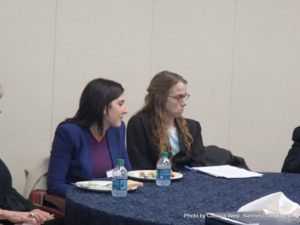
But as the day went on, I became completely baffled by the Carter Center Mental health audience and the topics. They mostly had presentations, with few spots for interaction or policy work. They talked about permanent supportive housing and supported employment, stuff I thought had been around for 20 years and shouldn’t have been new to anyone involved with promoting recovery. A couple of people asked, “What does this have to do with social inclusion?”
We didn’t talk much about root causes of discrimination and prejudice, or specifically how to solve it. Personally, I think stigma comes from making temporary emotional distress seem permanent and scary. My working group was led by a new facilitator who let the conversation be decided by aggression and not relevancy. The keynotes that night were illness stories instead of recovery stories. They were about the worst moments of emotional distress but not about how people had found a way out to a new life, except that medications had big role in all the stories. I got to the mic for the Q+A after Elyn Saks’ keynote, which was pretty similar to her TED presentation.
I just recited off our Undiagnosing T-Shirt from memory. I said, “Sometime it’s not genetic. Sometimes it’s trauma, lack of exercise, a poor job fit, nutrition imbalances, lack of social connections, or a spiritual emergency. How do you know the difference between biographical problems and biological problems?”
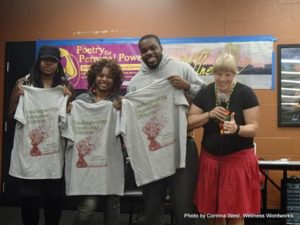
I was a bit keyed up and didn’t hear the answer but it sounded to me like, “We don’t really know.” But when I got back to my table, my friend said, “No, she basically said, ‘Just try the meds and if they work, it was biological.’ But that has no basis at all in science.” Whichever answer was closer to her real answer, I just walked away laughing, because it was so different than anything I know to be true. So different it was just like speaking a foreign language. During the whole symposium I felt like I was a bilingual person among people who only had ever heard of the one language. That’s why I host an internet discussion group, to come up with language that both regular civilians and mental health providers can understand and actually hear without getting too scared.
It’s what the entire mental health civil rights movement has worked on for years – If we have recovered, and thus we have knowledge about how and why we can recover, why won’t anyone listen to it? I tried to blog about this a while ago. I realized some of this is about coming at people politely and not challenging their basic motivations. As Pablo Sadler, the medical director of the New York City Bureau of Mental Health says, “You can’t call me a butcher and then sit down and talk to me.”
But I could tell somehow we hadn’t been able to sit down and talk to many of these people yet. And my friend on the “planning committee” was only invited to one single meeting. I just don’t know how to share the problems with the Disability Industrial Complex to people who can’t or won’t see the problem. The root problem has a short and simple explanation:
We’re labeling people with permanent illness who might have had temporary problems, simply an overwhelming of supports. Then we are giving them medications/drugs that might help some, but for many might be making the temporary problems into chronic problems. Then we have social supports that make it very difficult to leave this setup. All mental health people desperately need to ask themselves if this is working.
So six of my fellow advocates got together and made a statement about how we felt about the Carter Center mental health conference. We’ll get a printed version of this statement released fairly soon, but what we came up with on the fly at 11 pm in a hotel room after a full day of trauma still needs some revision.
Here is the statement made by psychiatric survivors during the conference:
How I feel after the Carter Center mental health symposium on social inclusion:
But I still don’t feel right after the conference. Something is clearly wrong in the upper echelons of mental health that I don’t understand. There is some kind of blindness to the facts and data that I totally don’t get. I talked to my mom, who is a Shaman, about this. She said, “If they can’t hear your data, all you can talk about are your feelings.” So I’m going to follow her suggestions and simply share my feelings.
Angry – How long can I say the same message without being heard? Why don’t people who are paid good money to “help” us actually do their jobs? But on the other side, how can I give them information in way they can hear it? But then why do I have to change MY message when it’s THEIR job to find what works?
Scared – I am wondering how many more of my brothers and sisters with mental health labels are going to have to die of medication “side effects” like the 18 fold increase in heart attack risk caused by combining psych meds. By the increased suicide rates from the lack of hope that people like me experience when told they have a lifetime illness instead of a simple existential crisis.
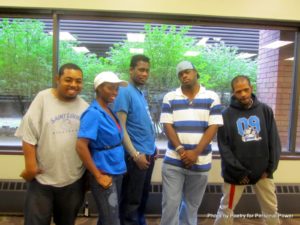
Hurt – I have created a great Poetry for Personal Power approach to social inclusion that doesn’t rely on labels and medications. I’ve got great buy in by the communities that are engaged, and you too can now get paid to replicate the Poetry for Personal Power program. We’ve got a first take at a “mental health fair trade” or “medication optimized” certification program for the general public. Why was I invited to a conference when people didn’t want to hear from me? I feel like I never got a chance to explain my program. I probably told about 15 people my elevator pitch, and they all said, “That’s nice.” and walked away. This is typically the reception I get with mental health providers. For the most part, the only people who understand a need for an exit route out of mental health care are people in the general community.
I interact a lot with people in the bicycling, poetry, spiritual, or entrepreneurial communities. When I tell them I am building an online community to help psychiatric survivors share information about complete recovery, they say, “Oh, that’s great, we need that so much.” Then they tell me the story of Uncle Jim or Cousin Juanita or even themselves who had a “permanent” label but found a way out. But people in the mental health policy communities never hear these “escapee” stories because they all suffer from Clinician’s Illusion – they only see sick people.
And I’m not just a naysayer. I’m a doer who needs a new plan.
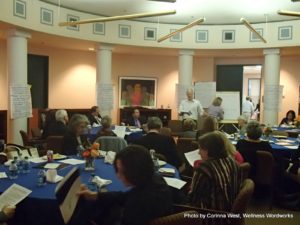
Usually I go to a conference and if I’m not being heard, I can figure out how to change my message so that people can hear it. But at this conference I wasn’t able to make any adjustments that worked. I came away wondering if anyone had been able to get it. Plus one of my trauma issues is that I feel like I have messed up at my job, and I felt like being critical of these people is truly a mistake. For a long time I have learned that it’s much better to share my ideas, share what I’m doing that works, instead of criticizing what other people are doing. One of my board members said, “Every single negative word you put in about your competitors is one positive word you don’t get to say about your program.”
But in some way, I can’t get beyond the criticism this time. I just feel like I have watched the genocide long enough and it gets to me. Almost every day I hear of a new friend or family member who doesn’t know about safe medication withdrawal techniques and thinks that their withdrawal effects means they indeed have an illness.
So another friend told me that I shouldn’t criticize people like Rosalyn Carter who has been working on this stuff for decades, just because she is not where I am with these issues. My friend said, “Usually when someone invites you to dinner you do not try to leave leave blood on the carpet. Just say ‘thank you’ and try to keep bringing the broader and truer message forward. Bludgeoning polemics will get you nowhere fast except to have the good work you are doing hoisted on your own petard. The thing is that most people are behind the times, most people don’t get it, most people don’t even know recovery is possible let alone what it would mean to really do inclusion campaigns.”
And here’s another review of the organization:
The Carters were amazingly progressive in 1978 when they did the Commission and they were the very first to invite consumers to the table and to actually listen. They started the Community Support Program, which lead directly to the development of the understanding of recovery, they funded progressive programming. They were amazing at the time. You are so young that you don’t remember that people were still being sterilized and used as slaves in state hospitals and could not vote in the 70’s in many states. A lot of people at the conference were people she has been working with since then. No one in America is hardly talking about true community inclusion yet. That is what we have the gift to do, because all of us are really into inclusion and social networking, and the arts, antipoverty work, peer support, wellness, transportation and everything that has brought us to national level work.
So here’s the new plan:
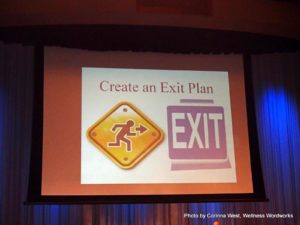
The way the internet and social media is changing the world, we really don’t need big money or big connections any more. The traditional powers need us, but we don’t actually need them. And that’s what I realized this week at the IT and entrepreneur conference I went to when I got home. It would be nice to have some of the $4.9 million that NIMH is giving Robert Gibbons to keep spreading statistical lies about antidepressants that increase teen suicides. It would be nice to get part of the $401,675 for each of 5 years that NIMH is giving Charles Nemeroff to prove PTSD is somehow (huh?) genetic. AFTER he was fired for non-disclosure of pharma payments, AFTER being suspended from a previous NIMH grant. It would be nice, even, if something actually happened to the suggestion that was made at the Carter Center symposium to include real and significant reviews and points for consumer/survivor involvement in NIMH grant activities.
But now, in the age of Web 2.0, which simply means interactive like the blog comments I want you to put below, we don’t need any of this. We can bootstrap this ourselves. Just the concerned doctors and parents and mental health civil rights workers that read and write this blog. We can fund each other on Medstartr to do research like figuring out outcomes for peer support centers. We can research out of our garages through contract labs to get assays done like how much meditation lowers cortisol compared to antidepressants. We can do a survey monkey review of 100 people who came off medications to see how they did it. The doctors in this community can look through a clump of their patients’ records like Sandy Steingard did to see how and why people can come off medications, or what truly helps people take back their lives. I’ve got an editor wanting us to put together a special edition in Frontiers in Psychiatry about coming off meds, so lets just get it happening.
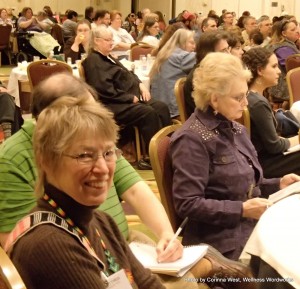
The tools of research are incredibly and increasingly more available to everyone, now. We no longer need to ask the gatekeepers for permission. We can work with them, share our tools with them, but we no longer need “them” or “those people” who don’t want to hear our concerns. So for me, I’m no longer going to try to convince any mental health providers that don’t ask me first. I’ve found a good measure of whether they are willing to hear what I have to say is whether they have a budget prepared for my contributions. My mom, the Shaman, has a good explanation for this. “Grandfather Fire says that everyone will come into the light at some point. Relax, you don’t have to drag them there kicking and screaming.”
We, honestly, can just leave all the old thinkers in the dust. And when they come to us ten years later, asking us how we freed millions, billions of people from disability, we can just say, “It was easy. We just realized adversity is universal. We just set up a way people could talk to folks who have been through it, and find what gave them personal power. I don’t understand why you thought it was so hard.”















Fascinating stuff, Corinna.
There is no more paradoxical and confounding industry out there like the mental health industry. I like how you follow the money trail a bit more than most bloggers here at MIA.
I think your most powerful realization is that the general public is probably more receptive to recovery without medications than the mental health field is, and that is who needs to be educated about what really works for people trying to survive a psychiatric diagnosis of lifetime illness.
Report comment
I’ve noticed the same thing as Emily, that the general public has been far more receptive to recovery, reducing/eliminating drugs, the idea of trauma and that “labeling” is not helpful.
This was great perspective Corinna. Many don’t get a chance to run in the same circles you do so thanks for sharing what happens at “these places”!
David
Report comment
Thanks David for attributing to me the idea of looking to the general public but it is not mine. It is what I read from Corinna’s post. She is out there doing some really important work!
Report comment
Congratulations for trying, they don’t sound very receptive or concentrating on, “Recover,” either.
I went to a training workshop by George Lakey (he has a blog on the site, Wageing Nonviolence) where he said we often concentrate on, “the enemy,” the people who believe the opposite of what we do. He says we should concentrate on those who are nearer to us, or who are neutral and then try to get them to move more towards to what we believe. If we move enough people towards us then the people who believe the opposite have not support.
How this works in our struggle I don’t know at the moment, but I think it is worth considering.
Report comment
John, I really like that principle. Being able to engage in a good-faith transforming conversation with people close in goals or beliefs seems both a good strategy.
It might also be a test of credibility: that approach seems easier than curing people from emotional distress, so when reaching for the latter, it is important to convince ourselves and others we can do the former.
Report comment
Corinna
I think social inclusion must focus on connecting with the larger society, not the small world of the mental health system. We must change the larger social conversation.
Dr. John Grohol came back from the Carter Center symposium expressing similar feelings about the unnerving effects of “professionalism.” Here’s the link to his article. http://psychcentral.com/blog/archives/2012/11/05/how-psychology-psychiatry-discriminate-against-people-with-mental-illness/
At some point we do need to come to terms with the effects of the scientific mindset. If you’re scientific, you get rigorous and focused. You need to dominate the variables and control conditions, and track results. It’s easy to develop “person blindness.”
Everyone’s thinking is vulnerable to “system effects” like these. Changing systems is hard. You can find a list of powerful systems change approaches here: http://redesigningmentalillness.blogspot.com/2012/06/where-can-we-get-some-leverage-to.html
Keep plugging away at it.
Report comment
Thank you for this post. It aptly expresses how I feel almost each and every day that I work as a peer guide. On my part, I’m tired of hearing how we ex-patients and survivors need to try to “understand” and “build bridges” to the people running the system. I’m tired of hearing how we have to be careful of not being forceful and strident because we will only alienate them rather than bring them to agreement with us. I’m tired of being told to “tone down” and to “couch our truths and experiences” in terms they’ll understand and not be offended by. To me this is like being told to lie. Why is it that we are the ones expected to do all the work while they sit there with those superior looks on their “professional” faces?! We’re expected to build 100% of the bridge and then 99% of them refuse to meet us halfway. Something is not right about all of it.
Report comment
Just don’t ever forget that you’re not just challenging their opinions or beliefs, you are challenging their careers and their jobs. They don’t want to listen to the people who have recovered because such people are not paying their salaries anymore. They don’t want their patients to wind up like those people because then they will be out of a job.
Report comment
You’ve got that right! A great percentage of them need to pursue training for a different career so that they no longer have to be quacks pretending to work at a profession.
Report comment
One of my husband’s favorite stories is about this libertarian dude who tried to talk sense into the Republican party. Like pointing out the Spanish speaking people are typically socially conservative, entrepreneurial, religious, and family oriented, things that would trend them toward being Republicans if the Republicans would just stop bashing immigrants.
This dude was once in room full of consultants giving a talk about improving political advocacy and getting stonewalled. Finally he realized, “I was talking about eliminating the middleman to the very middleman I was trying to eliminate.”
Report comment
Yeah, I totally agree that going to events like this is a complete waste of time. I don’t understand those folks who get all excited that they are being allowed in the same room with the “elite.” I think people who think like that are pathetic and completely without self-respect.
While there are a few professionals who are open to change, and some who are already decent, change is not going to come from the same groups of people who are being abusive. Why should they change? Of course, there are some “consumer leaders” who get off on this stuff, because the system is paying them to sell us out. There isn’t much we can do to change that either, but one thing we can do is stop taking these people seriously. They are just part of the system we have to fight, and they aren’t on our side at all, much less our “leaders.”
I love the quote from some bureaucrat or other who says you can’t call him a butcher and expect him to listen to you. Who the f— cares if he listens to us? I say, call him the butcher he is, and then refuse to listen to HIM.
I hope Corinna’s message here is taken to heart by a lot of people. We are wasting our time at conferences like this. We have to act like all other movements for liberation. All these other movements got somewhere by saying “We won’t take this any more,” not “Please be nice to us and we’ll kiss your a–.”
Enough of this nonsense! Let them have their self-congratulatory conferences! Let our “consumer leaders” be just as obsequious (trying to avoid the much more accurate four-letter words here) as they want. They represent absolutely nothing, and will disappear as soon as the funding goes.
People know what really needs to be done. Let’s do it!
Report comment
Amen and pass the ammunition!
Report comment
Do you have some data about the consumer leaders selling us out? I remember you mentioning a letter from way back, someone who knew “how to handle the radicals?” I come from Missouri. Our slogan is “Show Me.”
‘Cause I think you may have missed the whole point of this post, which is that criticism and nastyness doesn’t get anywhere, really. So it’s time to find another way to talk to people who can’t hear us or just give up on them and move on and build our own solutions.
Report comment
Thanks, Ted! http://www.youtube.com/watch?v=ssYBZmK9hmA The problem with people so profoundly traumatized as most psychiatrized people are is that it takes almost nothing to make them feel guilty and ashamed for speaking their truth, not to mention fighting for their rights. All it takes is a remark like “You can’t call me a butcher and expect me to listen to you.”
Report comment
Interesting video. Creates lots and lots of questions.
Report comment
Thanks for video link Marian, I found it very thought-provoking, and the pointer to Endgame by Derrik Jensen.
A government leader in mental health yesterday said in an Email to me that I was “selfish and unreasonable”, for challenging him and his team, for making various user organisations ‘arms’ of the government. As in ‘he who pays the piper calls the tune’.
I refuted this, the cheeky so and so, and said so back then forwarded his Email on to some others in leadership. And will write some blog posts about it in a day or two or more, for “revenge is a dish best served cold”.
Report comment
Corinna says: “I’ve got an editor wanting us to put together a special edition in Frontiers in Psychiatry about coming off meds, so lets just get it happening.”
I’ll contribute to this. Let’s coordinate.
Report comment
This is Jonah, right? You have a good understanding of the science. Can you send me an email? I can’t find yours. Mine is Corinna at WellnessWordworks dot com
Report comment
No, I’m Altostrata, of survivingantidepressants.org
Report comment
I would think the most valuable way to spend one’s time at one of these meetings is to do a presentation.
Report comment